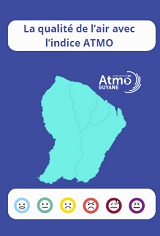Blada.com
dimanche 01 mars
Boîtes aux lettres
Courrier des lecteurs
Petites annonces
Emploi / Formation
Covoiturage
Infos citoyennes
Infos citoyennes
15/10/22
A l’hôpital comme à l’hôtel
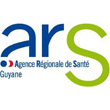 Le Chog a ouvert son hôtel hospitalier, au début du mois. De premiers patients avec des droits ouverts y séjournent, sur prescription d’un médecin de l’hôpital, lorsqu’ils habitent trop loin de Saint-Laurent du Maroni ou lorsque l’état de leur logement n’est pas compatible avec les soins qu’ils doivent recevoir à l’hôpital. Alternative à l’hospitalisation complète, l’hôtel hospitalier libère des lits dans l’établissement et évite aux patients des déplacements fastidieux voire inutiles entre leur domicile et l’hôpital.
Le Chog a ouvert son hôtel hospitalier, au début du mois. De premiers patients avec des droits ouverts y séjournent, sur prescription d’un médecin de l’hôpital, lorsqu’ils habitent trop loin de Saint-Laurent du Maroni ou lorsque l’état de leur logement n’est pas compatible avec les soins qu’ils doivent recevoir à l’hôpital. Alternative à l’hospitalisation complète, l’hôtel hospitalier libère des lits dans l’établissement et évite aux patients des déplacements fastidieux voire inutiles entre leur domicile et l’hôpital.

En cette fin d’après-midi, Daniel Pinas regarde la télé, en préparant son couac et son wassaï que des proches lui ont apporté dans la journée. Habitant de Charvein, entre Saint-Laurent du Maroni et Mana, il est rentré, cinq jours plus tôt, d’une opération en Martinique. Une longue cicatrice verticale, sur le thorax, en témoigne. Chaque jour, les équipes du centre hospitalier de l’Ouest guyanais (Chog) le voient, pour évaluer quand il pourra rentrer chez lui. Mais Daniel Pinas n’est pas alité dans une chambre de l’hôpital. Il est dans l’un des bungalows du nouvel hospitalier, ouvert le 4 octobre, dans la base vie de l’établissement.
Cette base vie, située près de l’entrée des urgences, a hébergé ou héberge encore du personnel de l’hôpital et des réservistes. Le Dr Borin Sam (réanimation néonatale) s’y est installé à demeure : « Ici, c’est tranquille. Mieux qu’en ville. » L’établissement vient d’y aménager dix chambres pour les patients. Des chambres simples en majorité et quelques chambres doubles pour des mineurs ou des femmes enceintes. Pour y séjourner, les patients doivent avoir des droits ouverts – c’est la Sécurité sociale qui prend en charge le séjour – et habiter loin de l’hôpital ou dans un logement qui n’est pas compatible avec la prise en charge dont il a besoin. Ce sont les médecins du Chog – et uniquement eux – qui prescrivent ces séjours de trois jours, renouvelables jusqu’à vingt et un jours consécutifs. Ces dernières semaines, ils ont été sensibilisés à ce nouveau dispositif, qui vise à libérer des lits d’hospitalisation. En cas de succès, d’autres bungalows seront aménagés.
Avec leurs couleurs vives à l’extérieur, leur télé, leur frigo, leur climatisation, ils offrent un confort que n’ont pas les chambres du Chog. Daniel Pinas y voit d’autres avantages : « Ici, je peux me promener, acheter à manger. » L’établissement lui livre les repas trois fois par jour. « Tous les jours, le personnel vérifie ma tension artérielle, poursuit-il. Quand ça ira mieux, je pourrai rentrer chez moi. »

A Cayenne, un projet pour fin 2023
L’hôtel hospitalier du Chog est le premier à voir le jour en Guyane. A Cayenne, l’hôpital travaille sur un projet pour la fin 2023. « Déclinaison du Ségur de la santé, la généralisation des hébergements temporaires non médicalisés fait suite à un dispositif expérimental mis en œuvre dans le cadre de la loi de financement de la sécurité sociale pour 2015, rappelle le ministère de la Santé et de la Prévention sur son site internet. L’expérimentation, qui a débuté en 2017 avec la sélection des pilotes, a duré trois ans et a concerné une quarantaine d’établissements de santé, publics comme privés : elle a démontré son utilité à la fois pour les équipes soignantes qui ont pu se concentrer sur leurs missions de soin et pour les patients qui ont pu bénéficier de conditions de prise en charge moins stressantes et moins fatigantes. »
« En effet, les hôtels hospitaliers permettent de fluidifier les prises en charge dans les services et de mieux gérer les lits disponibles en offrant aux patients une alternative à l’hospitalisation complète. Pour ces derniers, les hôtels hospitaliers constituent également un atout, notamment pour ceux éloignés de leur lieu de prise en charge, en leur évitant par exemple des transports fastidieux voire inutiles. »
Pour quels patients ?
« Sous réserve des places disponibles, ce sont les équipes de soins qui proposent ce mode d’hébergement aux patients qui y sont éligibles : par exemple, ceux domiciliés à plus d’une heure du lieu de prise en charge et dont l’état de santé ne nécessite pas de surveillance continue par des professionnels de santé, avant ou après leur hospitalisation. La prestation ne pourra excéder 3 nuits consécutives sans intervention, et 21 nuits dans sa totalité. A l’exception des patients bénéficiant d’une séance de soins (notamment en radiothérapie ou chimiothérapie) ou ceux transférés entre des territoires ultramarins et la métropole ou d’un territoire ultramarin à un autre. A noter que le dispositif concerne en priorité les patients mais que ceux-ci peuvent être accompagnés d’une autre personne, voire de deux s’ils sont mineurs. »
« Pour mettre en œuvre le dispositif, les établissements volontaires doivent tout simplement se déclarer auprès de leur Agence régionale de santé (ARS) dans le mois qui précède l’ouverture de l’activité. En pratique, pour héberger les patients, les établissements ont la possibilité de déployer le dispositif en interne dans des lieux dédiés ou en externe. Pour ce faire, ils ont la possibilité de conventionner avec un tiers qui pourra notamment être un autre établissement pour mutualiser leurs moyens, un prestataire hôtelier ou encore une structure associative. »
« Pour accompagner la mise en œuvre de l’activité, un remboursement est assuré par l’assurance maladie pour toute activité réalisée entre le 1er janvier 2021 et le 31 décembre 2023.
Le forfait est fixé à 80 euros la nuitée, couvrant les frais d’hébergement des patients mais également ceux de leurs éventuels accompagnants ainsi que leurs repas. Les établissements sont soumis à 2 conditions pour bénéficier de ce financement :
- Remonter mensuellement les données d’activité à l’ATIH
- Transmettre un bilan annuel d’évaluation à l’ARS.
Une évaluation médico-économique sera menée d’ici à fin 2022, par la DGOS (basée notamment sur les éléments qui seront remontés par les établissements). »
 The Chog opened its hospital hotel at the beginning of the month. The first patients with open rights stay there, on prescription from a doctor from the hospital, when they live too far from Saint-Laurent du Maroni or when the condition of their accommodation is not compatible with the care they should receive in hospital. An alternative to full hospitalisation, the hospital hotel frees up beds in the establishment and saves patients tedious or even useless travel between their home and the hospital.
The Chog opened its hospital hotel at the beginning of the month. The first patients with open rights stay there, on prescription from a doctor from the hospital, when they live too far from Saint-Laurent du Maroni or when the condition of their accommodation is not compatible with the care they should receive in hospital. An alternative to full hospitalisation, the hospital hotel frees up beds in the establishment and saves patients tedious or even useless travel between their home and the hospital.

At the end of the afternoon, Daniel Pinas is watching TV, preparing his couac and his wassaï that relatives brought him during the day. A resident of Charvein, between Saint-Laurent du Maroni and Mana, he returned five days earlier from an operation in Martinique. A long vertical scar on the thorax bears witness to this. Every day, the teams from the Western Guiana Hospital Center (Chog) see him, to assess when he can return home. But Daniel Pinas is not bedridden in a hospital room. He is in one of the bungalows of the new hospital, which opened on October 4, in the establishment's living quarters.
This base camp, located near the entrance to the emergency room, has housed or still houses hospital staff and reservists. Dr Borin Sam (neonatal resuscitation) has settled there permanently: “It’s quiet here. Better than in town. » The establishment has just fitted out ten rooms for patients. Mostly single rooms and a few double rooms for minors or pregnant women. To stay there, patients must have open rights – it is Social Security that pays for the stay – and live far from the hospital or in accommodation that is not compatible with the care they have. need. It is the doctors of the Chog – and only them – who prescribe these three-day stays, renewable up to twenty-one consecutive days. In recent weeks, they have been made aware of this new device, which aims to free up hospital beds. If successful, other bungalows will be built.
With their bright colors on the outside, their TV, their fridge, their air conditioning, they offer a comfort that the rooms of the Chog do not have. Daniel Pinas sees other advantages here: "Here I can walk around, buy food. " The establishment delivers meals to him three times a day. “The staff check my blood pressure every day,” he continues. When it gets better, I can go home.

In Cayenne, a project for the end of 2023
The Chog hospital hotel was the first to open in French Guiana. In Cayenne, the hospital is working on a project for the end of 2023. “ Declination of the Ségur de la santé, the generalization of temporary non-medical accommodation follows an experimental system implemented within the framework of the law on financing of la sécurité sociale pour 2015, rappelle le ministère de la Santé et de la Prévention sur son website. The experiment, which began in 2017 with the selection of pilots, lasted three years and concerned around forty health establishments, both public and private: it demonstrated its usefulness both for the healthcare teams who were able to focus on their care missions and for patients who have been able to benefit from less stressful and less tiring care conditions. »
In fact, hospital hotels make it possible to streamline care in the departments and better manage the beds available by offering patients an alternative to full hospitalization. For the latter, hospital hotels are also an asset, especially for those far from their place of treatment, for example by avoiding tedious or even useless transport. »
For which patients?
Subject to availability of places, it is the care teams who offer this type of accommodation to patients who are eligible for it: for example, those residing more than one hour from the place of care and whose state of health does not require continuous monitoring by health professionals, before or after their hospitalization. The service may not exceed 3 consecutive nights without intervention, and 21 nights in its entirety. With the exception of patients benefiting from a treatment session (in particular in radiotherapy or chemotherapy) or those transferred between overseas territories and mainland France or from one overseas territory to another. It should be noted that the device primarily concerns patients but that they can be accompanied by another person, or even two if they are minors. »
“ To implement the system, voluntary establishments simply have to register with their Regional Health Agency (ARS) in the month preceding the opening of the activity. In practice, to accommodate patients, establishments have the option of deploying the system internally in dedicated places or externally. To do this, they have the option of entering into an agreement with a third party, which may in particular be another establishment to pool their resources, a hotel service provider or even an associative structure. »
“ To support the implementation of the activity, reimbursement is provided by health insurance for any activity carried out between January 1, 2021 and December 31, 2023.
The fixed price is set at 80 euros per night, covering the accommodation costs of patients but also those of their possible companions as well as their meals. Institutions are subject to 2 conditions to benefit from this funding:
- Monthly report activity data to ATIH
- Send an annual evaluation report to the ARS.
A medico-economic assessment will be carried out by the end of 2022, by the DGOS (based in particular on the elements that will be reported by the establishments). »
Raccourcis

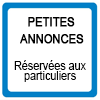
passer une petite annonce

passer une annonce de covoiturage


passer une annonce d’emploi


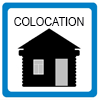
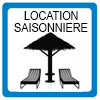

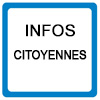

associations, postez vos actualités

participez au courrier des lecteurs
La Guyane c’est ici
La qualité de l’Air avec
ATMO
Photothèque

Lancements 2022
Vol 259 Ariane 5



